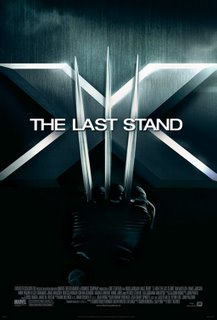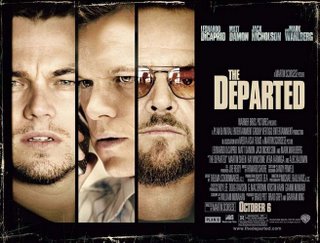What you should've watched this Halloween.

I like Halloween. I like Halloween. I like The Thing even more. I like the sloshy stylings of Eric Red, writer of Near Dark and The Hitcher. I adore The Nightmare Before Christmas despite it being tarnished by 'depressed' teens who abuse it to make themselves feel better with glitter. H.P Lovecraft would be proud of Alien. Vietnam allegories fly wildly in the likes of Aliens and The Texas Chainsaw Massacre. Scream proved postmodernism breeds. Horror movies are smart, and they're dumb. And the best ones do both at the same time. This is without even tapping into the inordinate number of sub-genres: science gone loopy (Frankenstein), the hotpot of religiosity (The Exorcist, The Wicker Man), technology and flesh (stand up David Cronenberg), comedy (The Evil Dead), slasher, snuff, faux snuff, and the big kahuna of them all: sex. At least since Janet Leigh took a shower in 1960.
Yes, sex is usually the death knell for any eager adolescent ready to pop their cherry in the vicinity of a serial killer. But it can also be the stuff of emotional validity or volatility, and nowhere is this more poetically expressed than in Nic Roeg's 1973 thriller Don't Look Now: simply the greatest, most haunting, beautiful, and sublimely unsettling picture I've ever seen. And even with my relative inexperience with the genre, I realise it takes a lot to incense a blind fear of the colour red. The stretched sex scene in which Julie Christie and Donald Sutherland make love to consummate their dwindling grief for their dead daughter is the one everyone remembers. Partly because it further showcases Roeg's tricksy editing (which is, by the way, unsurpassed), the scene remarkably intercut with the couple getting their clothes back on, but mostly because it suffuses the entire film with the heart-wrenching sincerity which will reach devastating proportions come the time that figure decides to turn around and face the camera.
Scraped down to basics, it's completely barmy. An old blind psychic waltzes through a church exhaling majestically. But the mood Roeg creates, contained within the unit of John and Laura's relationship, is perpetually truthful. It's intuitive. As the mind wanders, so does the camera. Once the foundation of togetherness is shattered, the frenzied explosion of "nothing is what it seems." is kept in check by sheer instinctive circumvention. If frozen lakes aren't flat, then they're certainly deep. For an ostensibly a British production, but there's nothing quaint or humble about Don't Look Now. Julie Christie will break your heart.
I was going to write a lengthy dissection of the film's burrowing psychology, but it seems rather unnecessary when the BFI rightly rank it as the eighth best Brit flick of all time and Roger Ebert waxes favourably about it here. So say a little prayer for sex in the cinema, it can be done right, with sensitivity, and consequently scare the living daylights out of you. The Baxter marriage is the most emotionally worn and realistic relationship this side of a John Cassavetes film. And when you're dealing with the dumb/smart genre of horror, that's really quite an achievement. Just wait until the remake.


